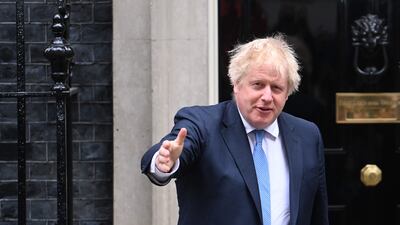Every nation has its national stereotypes. As a Scot, I can say that my fellow Scots are often generous people, but stereotypically we are considered thrifty with money. Some of my closest English friends conform to the stereotype that the English can be a bit eccentric. This is why they are often astonishingly creative and sometimes brilliant.
I am in Berlin right now and the stereotype of Germans is that they lack a sense of humour. This is completely false in my experience, although German officials – as with officials in most countries – rarely crack a smile. But I experienced some overturning of national stereotypes at German border control when I landed at Berlin-Brandenburg airport.
The German border policeman looked at my passport, and said officiously: “Reason for your visit?” I replied, in careful German, that I was here to visit my mother-in-law and father-in-law. The guard looked up at me. “Freiwillig?” he asked, meaning “voluntarily?” I laughed. He laughed, then he wished me a great time in his nation’s capital city. Germans, like the rest of us, can live up to their national stereotypes, but when a stereotype is so beautifully overturned, it is a kind of joy. Not, unfortunately, in Britain at the moment.
In British public life, we have today a number of political leaders determined to overturn our own, positive, national stereotypes and replace them with something that is anything but joyful or admirable.
If you asked most British people if the British, as a nation, are fashionable or well dressed, the answer would in most cases be “no”. There are some excellent British fashion designers, but the British tend to see Italians or French people as somehow much more “chic”.
And even though there are superb British restaurants and excellent chefs and food writers, we tend not think that British food can be described as being anything as fancy as a “cuisine”. Yet the stereotypes the British enjoy about themselves are truly positive.
We tend to see ourselves as a nation of hard working, broadly competent people with a “can do” practical attitude and considerable flair. We like to think we solve problems rather than create them. And while we take a resolutely sceptical attitude to politicians, our other national stereotype is that compared to other countries, the British political system is admired round the world for, among other things, having high ethical standards.
Corruption is something we appear to detest as a symptom of a failing political system. And yet, all these benign and positive stereotypes have undergone a series of profound shocks in recent months – more surprising to me than sharing a joke with a German border guard.
For the first time in British history we have in Boris Johnson a prime minister who has been found guilty of breaking the law. Worse, it is a law he himself introduced, the coronavirus regulations, which banned parties and other gatherings. Then there is the British stereotype about honesty in public life. We know that everyone lies at some time or other, but in British politics, the convention has always been that a politician who definitively lies to parliament should resign.
So sacred is this convention that an MP who calls another MP a liar is asked to leave the House of Commons chamber. But now many MPs, including some in his own party, are outraged that Mr Johnson appears to have broken that convention on lying.
His track record of dishonesty also breaks another British stereotype. This stereotype is sometimes called the “Good Chap” theory of government. It means that British politicians may bend rules and are – in that very English phrase – “economical with the truth,” but fundamentally they are “Good Chaps” who know that if they break the rules, they have to quit.
The UK’s finance minister, Chancellor of the Exchequer Rishi Sunak, has joined Boris Johnson in being fined for attending a forbidden party. Mr Sunak’s family’s tax affairs and his own nationality (he had a US Green Card) would, under the old “Good Chaps” stereotype, generally have resulted in his resignation.
Then there is the case of another Conservative MP, Crispin Blunt, who publicly questioned the decision of a criminal court to find yet another Conservative MP Imran Ahmad Khan, guilty of appalling sexual offences. The British convention is that politicians never try to subvert a court’s verdict in a criminal trial.
And then there is the festering row about government contracts going to friends of MPs. There are still further questions about prominent (and very rich) Russians giving money to the Conservative Party. Just about any one of these numerous scandals would have sunk a number of political careers and possibly brought down an entire government in the past. But not in 2022. Personally, I am delighted that the stereotype of humourless German officials has been overturned for me this week. But like millions of British people the stereotype of corruption-free British public life is something I have always cherished. Sadly, no more.


